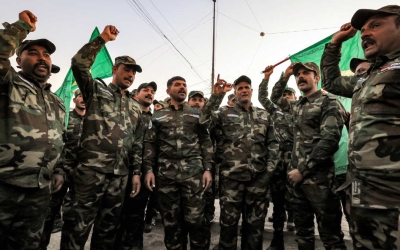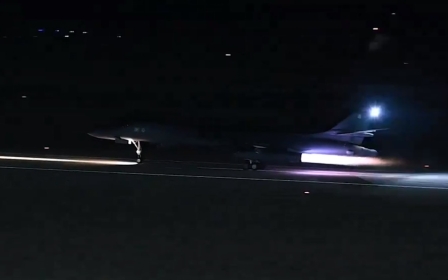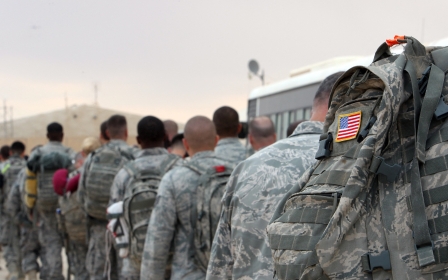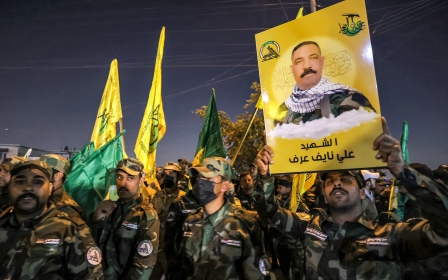US strike kills senior Kataib Hezbollah commander in Baghdad
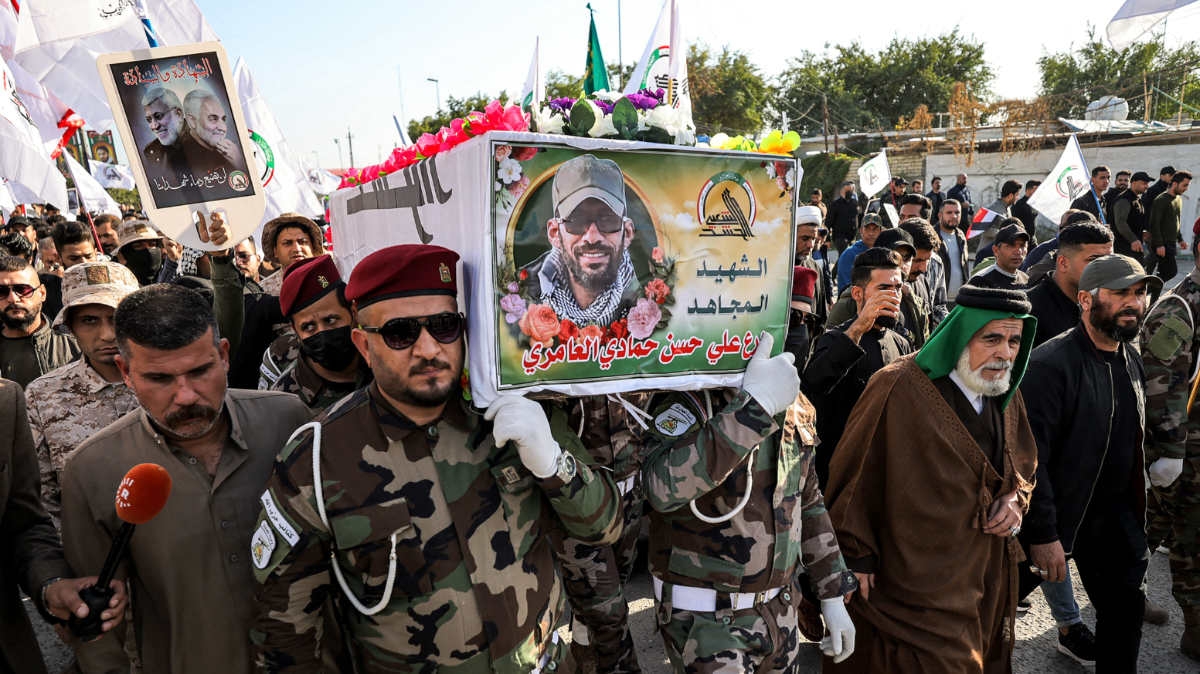
The US military said it killed a high-ranking commander in Kataib Hezbollah, an Iran-backed militia in Iraq, on Wednesday night in Baghdad in retaliation for a drone attack in Jordan that killed three US soldiers.
The strike killed at least three people, including senior Kataib Hezbollah commanders Abu Baqir al-Saadi and Arkan al-Alaywi. Video footage of the strike site in eastern Baghdad showed an SUV engulfed in flames.
US Central Command said it conducted a "unilateral strike” in retaliation to a drone attack last week at a remote desert outpost in Jordan that killed three US soldiers.
The US said the Kataib Hezbollah commander killed in Wednesday’s strike was “responsible for directly planning and participating in attacks on US forces in the region”.
The strike on Tower 22 in a remote sliver of northeast Jordan sent a shockwave through Washington, as it marked the first public deaths of US soldiers since attacks on US troops began, following the outbreak of war in Gaza in October.
New MEE newsletter: Jerusalem Dispatch
Sign up to get the latest insights and analysis on Israel-Palestine, alongside Turkey Unpacked and other MEE newsletters
The attack came just as US officials had assessed that Iran was looking to rein in its proxies to prevent attacks on US forces that could lead to the outbreak of a wider war.
On Friday, the US launched strikes on 85 targets in Syria and Iraq that it said were affiliated with Iran and its allies. But Wednesday’s strike marks the most powerful response yet. A former senior US defence official previously told MEE that Washington was weighing strikes on senior Iran-backed commanders in Iraq.
Who was Abu Baqir al-Saadi?
Abu Baqir al-Saadi was a senior figure in Kataib Hezbollah, the most powerful and active Iranian-backed Shia militia in Iraq.
He served as a former bodyguard to the group’s founder Abu Mahdi al-Muhandes, who was himself assassinated in a 2020 US drone strike that killed famed Iranian commander, Qassem Soleimani, according to the Washington Institute for Near East Studies.

Saadi later ran a cell in Kataib Hezbollah’s elite special operations unit. He was responsible for launching a 2021 drone strike in the UAE.
Since the outbreak of war in Gaza, he has worked directly with the Iranian Revolutionary Guard Corps to launch attacks on US troops. He has deep ties to senior Kataib Hezbollah officials including the group’s secretary general, Abu Hussein al-Hamadawi, according to Michael Knights from the Washington Institute for Near East Studies.
Alaywi, who was also reported killed in the strike, was a commander in Kataib Hezbollah’s intelligence operations.
US-Baghdad ties tested
The strike comes as the Biden administration struggled to respond to Iranian-backed militias, which have launched more than 150 attacks on US forces in the region since 7 October when the war between Palestine and Israel began.
The strike in Jordan was the most deadly for US troops since the war in Gaza erupted. Going into Jordan to attack US troops, a key US ally that has previously avoided being a direct battleground between Iran and the US, was viewed as a major escalation by current and former US officials who spoke with Middle East Eye.
Shortly after the administration laid the blame on Kataib Hezbollah, the group announced that it would halt military and security actions against US forces, saying it took the action to prevent "embarrassment" to Iraq's government.
The Biden administration has been wary of striking back at Iran and its allies too hard, for fear of provoking a wider regional war. But experts tell Middle East Eye that until now Washington’s response has failed to deter the groups.
The strike in Baghdad, however, is likely to complicate US diplomacy to reduce tensions in the region. It also comes at a sensitive time in US-Iraqi bilateral relations, with Washington in the process of negotiating a potential withdrawal of the US-led coalition to counter the Islamic State militant group from the country.
Kataib Hezbollah and other Iran-backed groups, which have pressured the government in Baghdad to expel US forces, have seized the opportunity amid the war in Gaza to escalate attacks, in a bid to realise that aim.
This article is available in French on Middle East Eye French edition.
Middle East Eye delivers independent and unrivalled coverage and analysis of the Middle East, North Africa and beyond. To learn more about republishing this content and the associated fees, please fill out this form. More about MEE can be found here.


